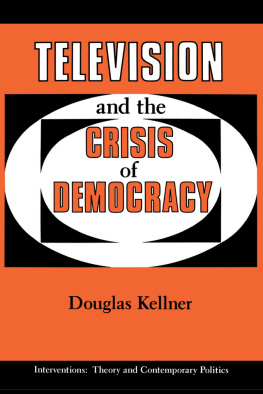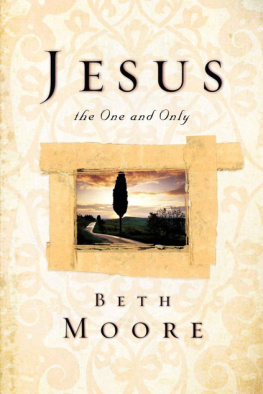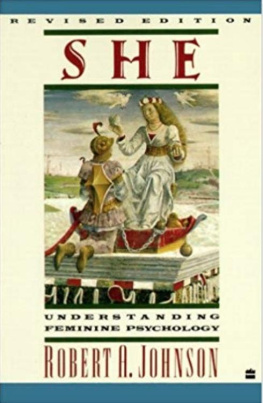Continuum International Publishing Group
A Bloomsbury Company
80 Maiden Lane, New York, NY 10038
50 Bedford Square, London, WC1B 3DP
www.continuumbooks.com
Basil Glynn, James Aston and Beth Johnson, 2012
All rights reserved. No part of this book may be reproduced, stored in a retrieval system, or transmitted, in any form or by any means, electronic, mechanical, photocopying, recording, or otherwise, without the written permission of the publishers.
Library of Congress Cataloging-in-Publication Data
Television, sex and society : analysing contemporary representations / edited by
Basil Glynn, James Aston, and Beth Johnson.
p. cm.
Includes bibliographical references and index.
ISBN 978-1-4411-7945-6 (hardcover : alk. paper) ISBN 1-4411-7945-3 (hardcover : alk. paper) ISBN 978-0-8264-3498-2 (pbk. : alk.
paper) ISBN 0-8264-3498-3 (pbk. : alk. paper)
1. Sex on television. I. Glynn, Basil. II. Aston, James, 1973- III. Johnson, Beth, 1980-
PN1992.8.S44T45 2012
791.45'6538dc23
2012002887
ISBN: 978-1-4411-4131-6
Typeset by Fakenham Prepress Solutions, Fakenham, Norfolk NR21 8NN
T elevision is a political medium. But the citizenry is often unmoved by this politics swirling around their privacy; too readily allowing reception to occlude engagement. Until sex happens. Sexual representation in any medium is never innocent (in all meanings of the word), and it is naive and disingenuous (even scandalous) to pretend otherwise. Moralists seek to censure on behalf of common sense or decency (while denying they are political); radicals seek to celebrate sexual representation as though there were no political problem with this. And it is television the most political of media which is the most potent arena of sexual images. TV screens are the banners and barriers wherein the images move, and the domestic space becomes the virtual agora. The representation of the supposedly most private of acts (a fiction, of course; a furtive disavowal of libidinal histories and erotic genealogies) in the private space of the home, the family, can spark a politics like no other form of representation. Dramatic, comedic, cartoonish, factual, satiric, educative the genres of sexual representation in the televisual medium all have one thing in common: sexual representation. And it is that which drives the writers in this collection.
What does it mean to represent sex on television? This simple question is at the heart of this collection of essays. And the answers are as various, urgent, worried, celebratory, messy, ordered and exuberant as sex is; and as multi-valent, engaged, complex, sophisticated, informed and enjoyable as television.
The question, though, is both more contained, and more various than I might suggest. There is a necessary periodicity that circumscribes the televisual texts chosen. And this is what makes the collection so necessary now, and what will ensure it becomes a key historical marker as the question of representing sex in television continues to fascinate scholars in years to come. The writers of this volume are attentive to the contemporaneity of their discourses discourses both televisual and sexual: which is to say political. This is a book of politics, a book that situates popular texts mostly consumed in domestic spaces in the full glare of the social world. And by specifying a world that is post-DVD, post-digital, and massively de-regulated in the US and UK contexts; and which benefits from a concomitant trans-nationalizing of popular discourses from previously segregated markets such as South Korea, these essays collectively offer a tentative global view.
The global reach does not, however, seek to simplify or homogenize the practises of representation. The politics of this collection is located in specificity the specific production contexts of the shows, the specific theoretical and political traditions that inform the essays argument. These various specificities work against the over-arching moral certainties of voices that would seek to contain both the particular instantiation of sexual activity and its representation into totalizing schemes of abjection, revolution, domination, control or whatever; but are nevertheless energetically committed to an understanding of these discourses.
The particularity, care and attention of each essay to its text, to its moment, to the specific questions posed by its particular form of representation provides a profound set of specific insights. But the totality of the collection, without forcing an agenda or determining a position, offers a more generalized politics of response. The collection as a whole understands television as politics; representation as politics; but equally it understands politics as representation which is to say that the act of creating a televisual aesthetic to represent a sexual act, encounter, conflict or whatever is understood as political gesture. This gesture is implicated in histories of television, of commerce, of art, of of exploitation and liberation. It cannot seek to offer answers (television is a political medium, and politics offers no answers) but the gesture, by virtue of being political engages the polis (however unaware or unwillingly) in its newly articulated space of political action, its living room, or kitchen, or bedroom agora.
And this book is further part of that politics. It offers articulations, histories, contexts and arguments that serve to provide parameters for debate, positions for dispute. Like the shows they discuss, the essays challenge, interrogate, unsettle, amuse, delight and frustrate in equal and splendid measure. Television is a political medium (aesthetic and the industrial) and sexual representation is always a political action (aesthetic and libidinal) and this book analyses, celebrates, engages with and critiques these intersections of different modalities of the political.
These modalities will shift, and when they do this book, as well as the shows it discusses, will be essential in the emerging histories of television, sexuality, politics and representation. Would that all academic books had such ambition.
Matthew Pateman
November 2011
A s the title of this edited volume indicates, Television, Sex and Society: Analyzing Contemporary Representations aims to provide a critical overview of representations of sex on television from the 1990s to the present day. Focusing specifically on representations of tele-sex in the United Kingdom, United States of America and East Asia, the purpose of the collection is to both intervene in and add to debates concerning the various screenings of sex, sexuality, gender, im/morality and the societal ideologies regarding sex that such programmes convey in the everyday. There is a need to do this because as Feona Attwood (2009) has recently stated, there has been a gradual mainstreaming of sex in the contemporary age. And yet, although Attwood discusses a wide spectrum of cultural manifestations from commercial media production to amateur and/or DIY creations covering disparate forms such as advertising, literature, music and cinema, little is aimed at television and in particular how sex is represented within the medium. The need therefore to readdress television as an important cultural site in the representation of sex is essential, especially seeing as television is integral to everyday discussions and representations of sex, evidenced by the sensational and salacious headlines garnered by many contemporary productions, be it the films, football and fucking (Dawn Airey cited in Moyes and Robins, 2000) of early Channel 5, the biting bloody sex in










